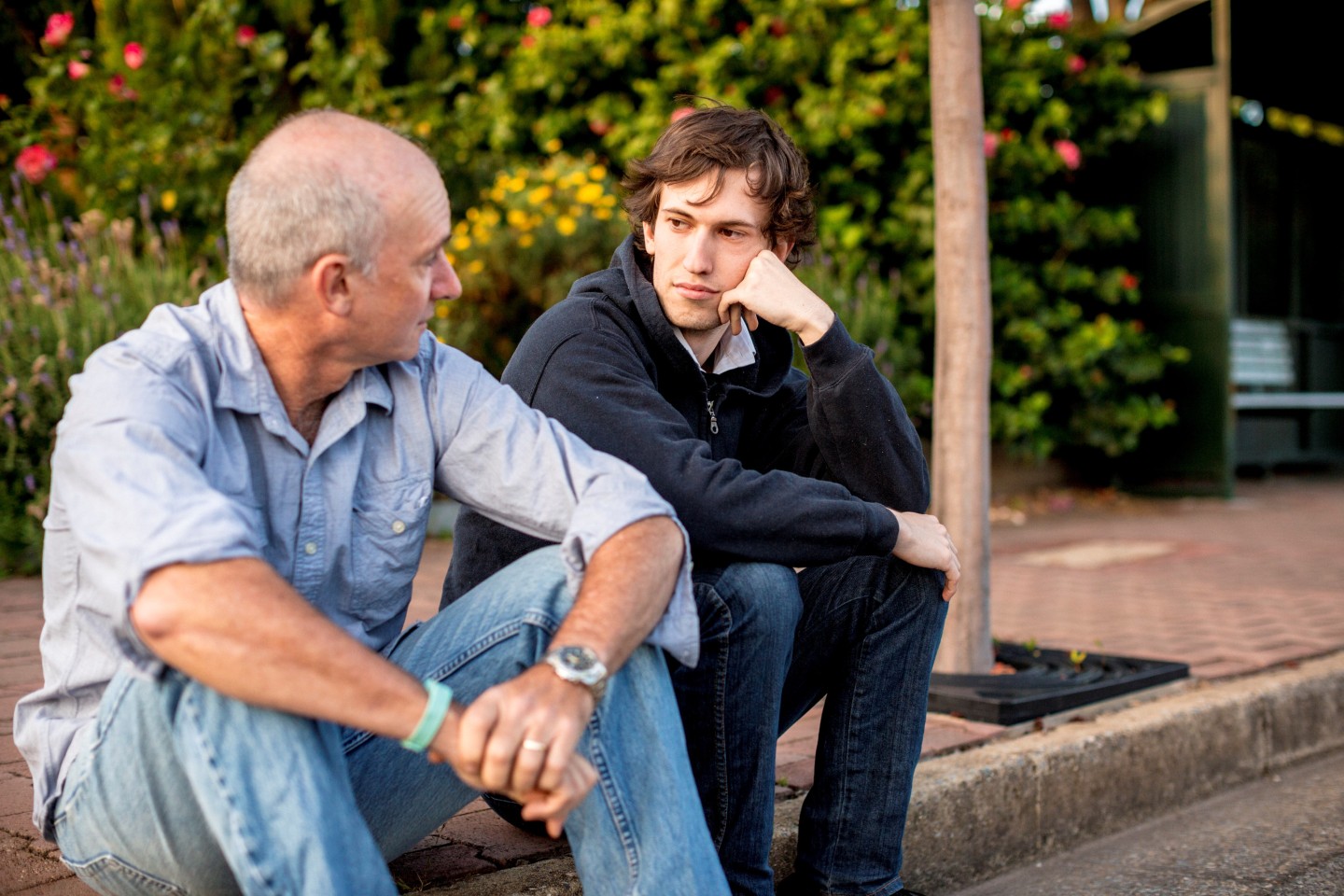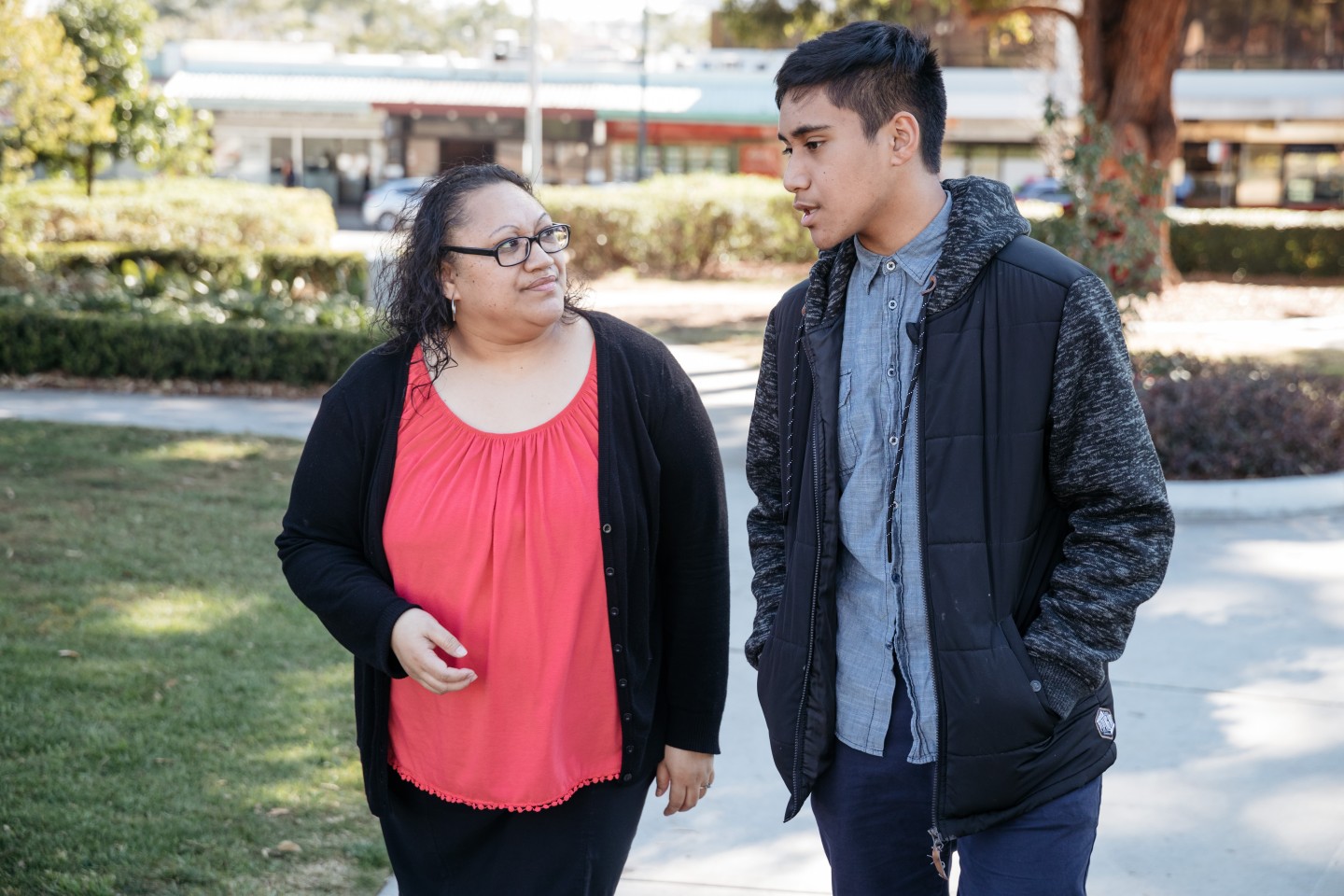Grief is a normal response to loss, but that doesn’t make it easy. Everyone experiences grief differently and there is no ‘right’ way to grieve. Children and young people often grieve in different ways to adults. Culture, gender, personality, values and beliefs, how the loss happened and past experiences of loss can also affect how we grieve.
Sometimes grief effects friendship groups or whole communities. In First Nations and many other cultures, grief is experienced collectively and can accumulate over generations. Coming together to grieve is an important part of the healing process in some communities. For many young people with family and connections overseas, global or community events such as conflict or natural disasters can bring or deepen feelings of loss and grief.
Grief is often experienced with the death of someone close to us, such as a family member, friend, community member or a pet. But grief can occur with other losses too. These include physical injury, serious illness or the loss of a job, hopes and dreams or sense of identity. Grief can occur with the loss of family or friends who are still alive, for example, through separation or divorce or changing schools.
It is common to feel grief when leaving family, home or country. People who move from their country or place of origin can feel deep loss and longing at the time of leaving and beyond. For First Nations peoples in particular, longing for Country can linger a lifetime. First Nations young people might also grieve the loss of culture and cultural knowledge, which could be felt as a sense of uncertainty or lack of confidence in who they are.
The grief experienced in the situations described above is often unseen or underestimated, and the person is more likely to miss out on the support they need.
Download our fact sheet on understanding grief and loss
(PDF 603kb)
What to expect
It’s useful to think of grief as a process, rather than a one-off event. For some people, grief can affect almost every part of life and make the smallest task feel daunting. Others adjust to the loss quite quickly. While everyone will experience grief in their own way, here are some common effects of grief on young people.
Feeling
Grief can include a mix of shock and disbelief, confusion, pain, numbness, deep sadness or longing, guilt (about the past, or about being happy in the present and future), anger, resentment, feeling abandoned, worrying about the future, helplessness and relief.
The young person you’re supporting might have strong and unpredictable emotions that can be confusing for them and hard for them to name or explain. They might show these openly, or keep their feelings to themselves and seem unaffected. The young person might want lots of attention, might want to be left alone, or both of these at different times.
Thinking
Young people grieving might have trouble concentrating, staying focused on tasks and remembering things. They might seem distracted, or more distant than usual. Some ask lots of questions about death. Loss can make them question their values or rethink what really matters in life. They might start wondering whether it’s worth putting time and energy into things when they can be lost in an instant. Sudden or unexpected loss can shake their assumptions about how the world ‘should’ work in a safe, predictable and fair way.
Body changes
Grief can affect the immune system, making people tired, ‘run down’ and more prone to colds and flu. Headaches, nausea, and muscle aches and pains can be part of grief, as well as changes in weight or in eating and sleeping patterns.
Doing
The young person you’re supporting might seem agitated, irritable and/or teary, or act in unpredictable ways. They might seek physical closeness with family and friends, or feel the need to check in on them regularly to make sure they are OK.
Some young people want to talk about their loss with family while others will turn to friends for support, both in-person and online. Some withdraw, spending more time alone or avoiding certain people or places, such as family or community events, school or work.
Some young people will turn to their spiritual or religious beliefs for guidance or understanding. Some will express their grief through creative activities such as art, music or writing. Some turn to alcohol or other drugs to try to cope with their grief, and some get involved in activities or behaviours that cause trouble, upset their relationships or break rules or laws. If these behaviours are a part of their response to loss, support should involve helping them heal the pain of their grief.
Whatever their responses, young people who are grieving need patience, compassion and understanding.
Although it might be hard to see it right now, learning to navigate the grief that comes with loss builds lifelong abilities and strengths. It can also lead to a deeper relationship between you and the young person.
How long does it take to grieve?
There is no predictable time frame for grieving. It can be an up and down journey, and it can take months or years to adjust to life without whoever, or whatever, has been lost.
Most young people will carry on with their lives while grieving and not need professional support. However, it is important to get help if the young person is struggling to manage on a day-to-day basis, still affected by grief after a long period of time, or if the circumstances of the loss were highly traumatic or distressing. Young people who have experienced lots of losses might also need extra support.
How to support a young person who is grieving
Invite the young person to talk with you about their loss and make time to listen if and when they are ready. Respect their choice if they are not ready. Let them lead the conversation and try to understand their experience. Be ready for them to express strong emotions. Avoid minimising their loss or suggesting they “get over it”. Try to be open and honest in your answers to the questions they ask; young people, just like everyone else, need accurate information so they can make sense of what has happened. If you don’t know what to say in response, it’s OK to tell them this.
If the loss has affected you too, let them know it’s normal for people to grieve in different ways. Share information about grief and how they can look after themselves. It can be challenging for everyone when the loss is shared, such as when a family member or member of a friendship group dies. Some people might feel they have to ‘be strong’ and not show their feelings because they don’t want to make others feel worse. Professional support, whether individually or together as a family or community, can help in this situation.
Loss can make us feel as if things are out of control. A far as possible, keeping to usual routines and spending time with friends, family and community can help young people hold on to a sense of control, security and hope for the future.
Staying connected to the people, places and activities that make a young people feel good also supports a sense of belonging. This is the essence of the ‘Social & Emotional Wellbeing’ model of health in First Nations culture. For First Nations young people, this might mean connecting with cultural practice, Country, family and kinship networks. This approach to wellbeing is also helpful for non-Indigenous young people. It is about gently connecting young people with supportive family, places and activities that help them feel a sense of belonging to their family, identity, and - if applicable - spirituality.
Other tips for supporting a grieving young person
- Acknowledge their loss and that grieving takes time
- Ask how they are feeling
- Let them know you are there for them; ask them what they need from you
- Be patient, respond calmly to their needs. This will help them feel safe and connected with you
- Support them, if they wish, to participate in events that mark the loss (funerals, memorials or other cultural, spiritual or religious practices)
- Support them, if they wish, to gather stories and memories, and to do this in ways that suit them (e.g., online posts, writing, photos, journals, talking about who (or what) has been lost, being part of or designing personal rituals)
- Think ahead about times or events that may be especially difficult (spiritual, religious or cultural events, birthdays, anniversaries) and together develop a plan for managing them
- Help the young person to get information and further support if needed. This could include support from extended family, community members or spiritual or religious leaders
When to get professional help
Generally, people find things get easier with time, without the need for professional help. However, it is important to get help if the young person’s grief is persistent or severe. Signs that professional help might be needed include:
- High levels of distress
- Feelings of hopelessness, intense sadness or depression
- Withdrawal for a long period of time from family, friends, community, activities and school/study/work
- Dangerous, violent or illegal behaviour
- Strong feelings of guilt or self-blame
- Recurring thoughts of death, self-harm or suicide
Professional support is particularly important if the young person is grieving when someone has died by suicide.
If you think the young person needs more help
Encourage them to reach out:
- at their local headspace centre
- via online or phone support with eheadspace
You can also:
- Talk to your GP about options for family counselling
- Find out if there is grief and loss support available through your young person’s workplace, school or study provider.
Other grief and loss resources
Griefline - National grief helpline (8.00am – 8.00pm, 7 days, online or phone)
Grief Australia - Adolescents and grief
RUOK - How to support someone experiencing grief and loss
SANE - Busting the myths about grief
Raising Children Network have a series of resources on supporting children and teenagers when a parent or sibling is dying or has died: Death & grief: supporting teenagers
Resources for Aboriginal and Torres Strait Islander young people and family
headspace resources - Take a Step
Dept of Health Tasmania - Grieving the Aboriginal Way
The Healing Foundation - Intergenerational Trauma Animation – YouTube
13Yarn factsheet on Grief, loss and Sorry Business
The headspace Content Reference Group oversee and approve clinical resources made available on this website.
Last reviewed June 2024
Get professional support
If you feel you need help there are a range of ways we can support you.


